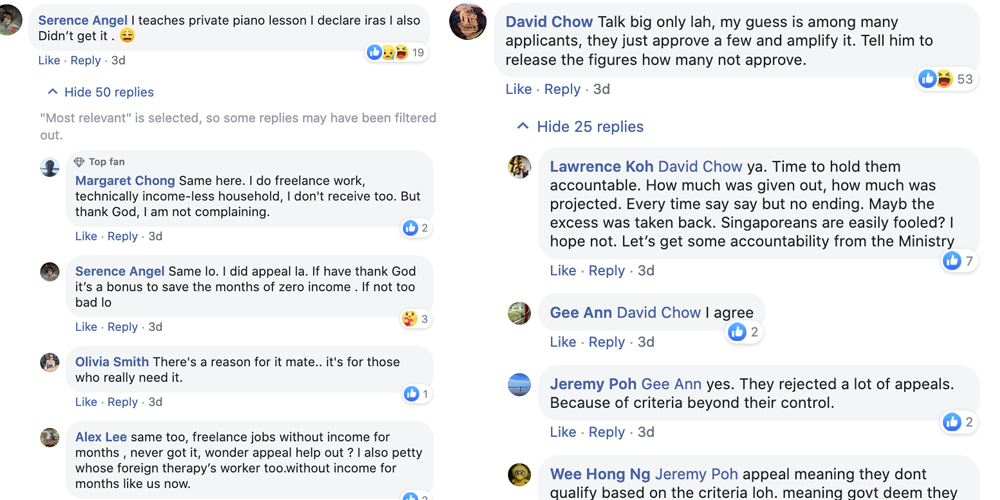On 15 May, CAPE (Community for Advocacy & Political Education) and the Singapore Policy Journal hosted a forum titled “What are the ‘sacred cows’ that the outbreak of COVID-19 in Singapore has exposed and challenged?” about how the nation might emerge from this pandemic more resilient and equitable.
The discussion featured Nominated Member of Parliament (NMP) Associate Professor Walter Theseira, sociologist Professor Chua Beng Huat, former NMP Viswa Sadasivan, Associate Professor of Law at Singapore Management University and former NMP Prof Eugene Tan Kheng Boon and National University of Singapore adjunct professor and veteran architect Prof Tay Kheng Soon.
One of the main talking point of the discussion was the need to shift Singapore’s value system which is inexorably linked to its economic growth model which rewards capital instead of wages.
Elaborating on this, Assoc. Prof Theseira talked about the conflation of efficiency with the measure of human value, specifically that we measure a person’s worth based on how much they are paid.
Using the current pandemic as an example, the NMP said, “So if you think of COVID-19, one of the uncomfortable facts we’ve noticed globally is we are all dependent on essential services workers to clear the trash, to keep the streets clean and so on. Without them, things don’t run. But guess what? They’re all paid quite badly, right? And in normal times we really don’t worry much about them.”
“We think that those jobs are not very desirable but the reason why we don’t think much of those jobs is because in the back of our heads, we’re linking the pay that these people get and their value as human beings. We might not say it outright, but that’s the idea we have on the back of our heads.”
This type of conflation when it comes to migrant workers is “extreme”, the Assoc. Prof Theseira said.
“They come from countries with a much lower level of economic development. Not because of that, somehow we think that we’re justified in treating them worse than how we would think Singaporeans deserve to be treated.”
“Why? Because we think to ourselves they are “low value” therefore we can treat them badly as well. It’s an argument or it’s a belief that we have in our head that people somehow deserve to be treated based on their economic capabilities which isn’t quite right.”
Moving forward, the associate professor suggested that as top-line efficiency is increased, compensation should be given to those who have been hurt by policies and processes used to increase efficiency. He added that most countries have “failed miserably” at this.
He also stressed that this compensation should not be considered as a handout because that would be harmful to the dignity of those who got the short end of the stick of globalisation.
Efficiency does not equal human value
Assoc. Prof Theseira also emphasised that Singapore society has to drop the illusion that efficiency and human value are the same thing.
He suggested, “So I’d really like to have a systematic way of raising wages for lower paid workers but I think we also need to question the fiction we have that wages are automatically linked to productivity.”.
Similarly, Prof Tan highlighted society’s “fixation” with value, explaining that society has placed economic worth as the measure of a person. Doing so has led to society becoming kind of “immune” to what is happening with migrant workers, not just now but for the past several years, he said.
The professor explained, “But my concern is that if we can treat a segment of our society like that, it could mean that that sort of discrimination could easily go to another segment of our society.”
During the discussion, ex-NMP Mr Sadasivan urged that for the country to shift its economic growth model to one where growth is not the main measure of efficiency and success, we also need to shift society’s value system.
He said, “You see, we feel as a society we are not getting enough. We have to continue to earn a lot more. There is no contentment in our society. Everything is predicated on dollars and cents,” stressing that we need to be contented with what we already have.
He later added, “We need to ask ourselves, maybe we should be more willing for the top categories to accept a higher tax rate and be prepared to share a lot more and allow for greater redistribution of wealth in society.”
Watch the full discussion here:





